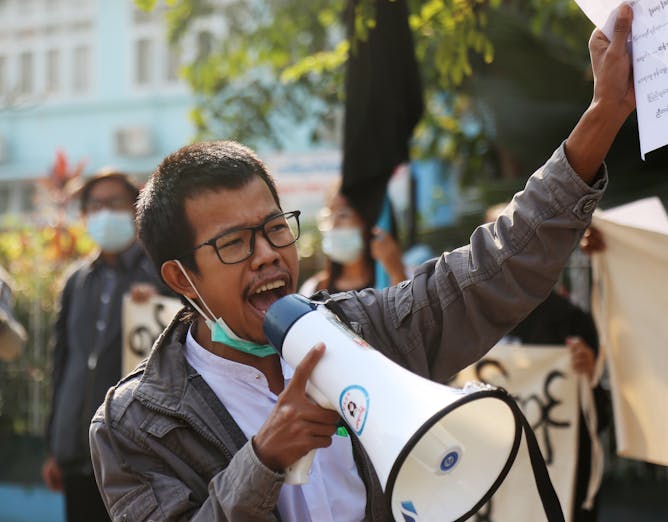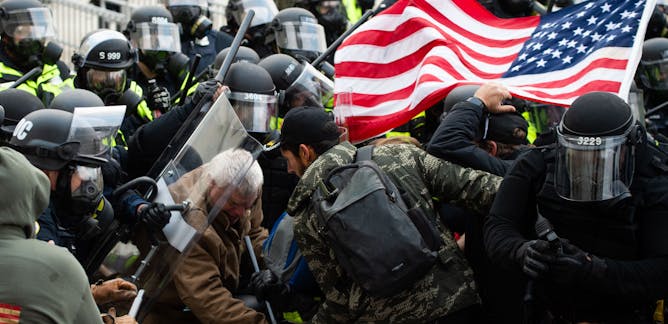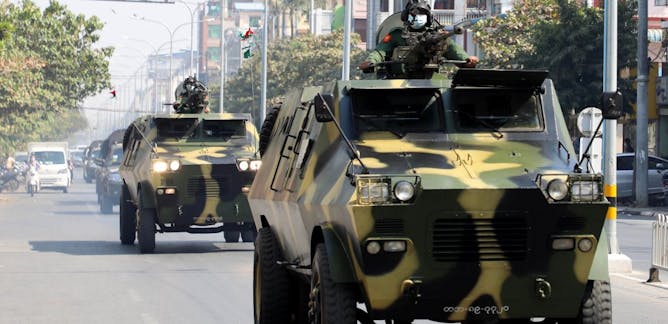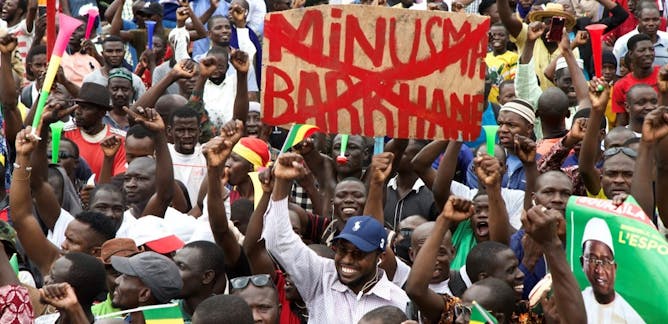|
|
|
|
Around 5,000 years ago, what we know today as Ancient Egypt came into existence. At around the same time, other civilisations were rising across the world. Why did human social dynamics change so dramatically in such a relatively short space of time? Why did we stop living in smaller communities and come together into cities and “civilisations”? Benjamin T. Pennington unpacks the findings of a groundbreaking study into how the natural
landscape changes in the Nile Delta may have not only helped stimulate local take up of farming technologies, but might also have played a role in the emergence of the first “nation state”.
Myanmar has once again returned to military rule, with a year-long state of emergency declared by the army. When military dictators ruled Myanmar from 1962 to 2010, they were able to maintain tight control over the people through the country’s extensive intelligence apparatus and harsh tactics such as imprisonment, torture and mass killings. As a result, Myanmar’s people lived in virtual silence for decades. However, after a decade-long political transition that brought Aung San Suu Kyi’s National League for Democracy to power, Myanmar is now a changed place. DB Subedi and Johanna Garnett argue that, for the military, maintaining “social control” may not be as easy as it was before.
|
Julius Maina
Regional Editor East Africa
|

|
|

A depiction of a man milking a cow found on one of the walls of ancient burial tombs south of present-day Cairo dating from 2340 BC.
Photo by DeAgostini/Getty Images
Benjamin T Pennington, University of Southampton
Natural landscape changes in the Nile Delta may have not only stimulated local take up of farming technologies, but might also have played a role in the emergence of the first “nation state”.
|

KAUNG ZAW HEIN/EPA
DB Subedi, University of New England; Johanna Garnett, University of New England
Myanmar is increasingly connected to the world via social media, which will make it more difficult for the country's new military leaders to maintain social control.
|
Politics
|

Joseph G. Bock, Kennesaw State University; Marta Poblet, RMIT University; Per Aarvik, Chr. Michelsen Institute
Civilian peacekeepers are trying to stop violence before it starts.
| |

Paulo Shakarian, Arizona State University
Sophisticated fake social media personas created by North Korean hackers offered to collaborate with cybersecurity researchers. Several US researchers fell for it.
|
|
|
Health + Medicine
|

Matteo De Marco, University of Sheffield; Annalena Venneri, University of Sheffield
In this new study, people who were overweight had fewer brain cells and lower levels of blood flow compared to people of a normal weight.
| |

Richard Kuhn, Purdue University
The virus is evolving and new strains are more transmissible. Will the vaccines work against these new variants? How can researchers stay ahead of the virus's evolution?
|
|
|
Environment + Energy
|

Alex Forryan, University of Southampton; Alberto Naveira Garabato, University of Southampton; Alex Hearn, Universidad San Francisco de Quito (Ecuador)
How Pacific winds interact with the sea to bring colder waters up from the depths.
| |

Robert Baxter, Durham University
Glaciers support a unique community of plants, many of which are found nowhere else.
|
|
|
En Français
|

Adam Simpson, University of South Australia; Nicholas Farrelly, University of Tasmania
Les militaires birmans bénéficiaient déjà d’une immense influence économique et politique. Dès lors, pourquoi viennent-ils de s’emparer du pouvoir par la force ?
| |

Boubacar Haidara, Université Bordeaux Montaigne
Mettre fin à l’opération Barkhane ne résoudra pas les problèmes sécuritaires du Mali. L’armée française est évidemment vouée à quitter le pays un jour, mais sa présence est pour l’instant nécessaire.
|
|
|
| |
| |
| |
| |
| |
| |
|
|
|
|
|
|
|